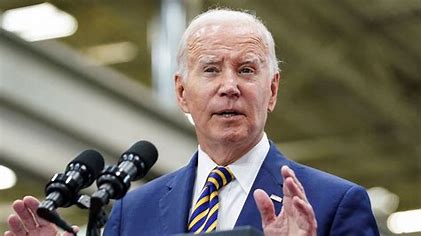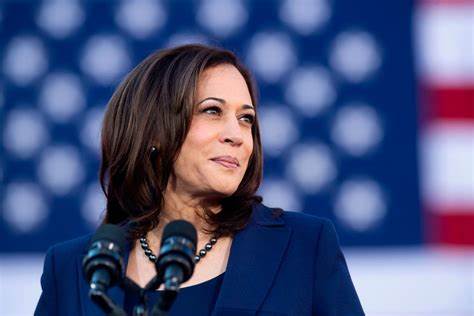|
Getting your Trinity Audio player ready...
|
Legal Corner – November 26, 2020
By: Nathaniel E. Ballantyne
The Georgia run-off senate elections will determine whether a president Joe Biden will attempt to pack the Supreme Court. If Democrats control the U.S. Senate expect them to demand an expansion of the Supreme Court. With Judge Barrett decision last Wednesday night to shift the court to the right on coronavirus, members of Biden’s inner circle are now wondering whether they should start making a plan for a court-packing fight with Republicans who will undoubtedly oppose the idea.
Expanding the Supreme Court to create a fair balance might be necessary to protect the rights of Americans. After the American people recently elected Joe Biden knowing that he might pack the court, he now may have the mandate to do so.
Expanding the Supreme Court to more than nine seats is not a novel idea. Expanding the court has been attempted and done before in American history. With the appointment and confirmation of Judge Amy C. Barrett, Democrats, rightfully so, are frustrated that the Supreme Court could get even more conservative, and last night was the first serious indication that their fears were valid – Judge Amy Barrett is starting to move the court further to the right with her decision barring New York from reimposing restrictions on public gatherings of churches and synagogues during the pandemic.
During the campaign Biden and his vice presidential nominee Kamala D. Harris avoided direct questions in their debates about whether they would support packing the courts. “Whatever the position I take on that, that will become the issue,” Biden replied to moderator Chris Wallace in the September debate, an answer that acknowledges what a sticky political issue this is. But now Biden is elected and the Supreme Court is titling further to the right there are valid reasons to push through legislation to pack the court.
What is court packing?
“Court packing is adding more judges to a court than there are now, something that can be done on the federal level simply by passing a law. The Constitution says nothing about how many justices there must be on the Supreme Court, and over time, the number has fluctuated. The court started out with six justices, expanded to seven and has gone as high as 10. Congress set the Supreme Court to be nine justices in 1869, but if a president and Congress agree, they could change the law to expand the court or shrink it.”
What’s the argument for adding justices to the court?
“Doing so would change the political makeup of the court and influence its decisions. Congress and the president might decide that the court majority is too far out of line with their understanding of the Constitution and the law or public opinion. Then, add seats and fill the court with justices who think more like them in the hope of rebalancing the scales. Since justices effectively can’t be fired, except by impeachment, the idea of court-packing is to dilute their vote.”
A brief history of court-packing
“In the Civil War era, the court expanded and shrank like an accordion. In 1863, the Republican Congress expanded the court to 10 justices to give President Abraham Lincoln an extra appointment. A few years after, Congress reduced the court to seven justices to prevent President Andrew Johnson from making any appointments, and then expanded it to nine in 1869 to give President Ulysses S. Grant vacancies. It has stayed at nine ever since.”
But other presidents have tried to change it. President Franklin Delano Roosevelt attempted in the 1930s to get Congress to expand the court, frustrated by how it was knocking down pieces of his popular New Deal legislation. He put out a judicial overhaul plan that would allow him to appoint a new judge in all federal courts for every judge older than 70.
“That’s the way it was dressed up, but people saw pretty clearly what it allowed him to do,” said Russell Wheeler, a Supreme Court expert with the Brookings Institution, “which was to aim to appoint justices for the five or six who were over the age of 70 on the Supreme Court.”
Roosevelt’s idea hit a wall in Congress. But in a roundabout way, he got what he wanted: The court saw its majority imperiled, and two justices began switching their votes to support New Deal legislation. “It’s called ‘the switch in time that saved nine,'” Wheeler said. “They switched their approach to New Deal legislation, and that saved the idea of nine justices.”
Democrats are frustrated about how the newest justice, Amy C. Barrett, has gotten on the court: under extremely politically divisive circumstances, nominated by a president during a presidential election year, a president who lost the popular vote in 2016 and approved by a bare majority of a Senate that, because of where people live, no longer represents a majority of the population.
Any one of these things might not have been sufficient by themselves,” said University of Michigan assistant professor of law Leah Litman. “But the combination of all these things … strikes people as no way to run a country.”
“Nothing is off the table,” Senate Minority Leader Charles E. Schumer (N.Y.) told fellow Democrats a month before the election. He didn’t specifically mention court packing, but this was interpreted as a nod to considering the idea since he didn’t rule it out.
Expanding the court gained traction during this year’s Democratic presidential primary. As many as 11 candidates were at least open to it, “It’s not just about expansion, it’s about depoliticizing the Supreme Court,” Sen. Elizabeth Warren (D-Mass.) said. “It’s a conversation that’s worth having.”
“We need to reform the Supreme Court in a way that will strengthen its independence and restore the American people’s trust in it as a check to the presidency and the Congress,” former South Bend, Ind., Mayor Pete Buttigieg said.
Biden is not a fan of court-packing, he sees it as a maneuver that could come back to haunt Democrats when they’re out of power. What’s to stop a Republican president and Republican Congress from expanding it, even more, to get what they want? That was a feature of the Reconstruction era. “We’ll live to rue that day,” he said last year during the primary.
Biden has served in the Senate for more than 30 years and has a reputation for respecting institutions and the way things are done. He’s an unlikely candidate to be the first president in some 150 years to expand the court.
The late judge Ginsburg was against court-packing, “If anything would make the court look partisan,” she told NPR in 2019, “it would be that — one side saying, ‘When we’re in power, we’re going to enlarge the number of judges, so we would have more people who would vote the way we want them to.'”
Democrats may be in a position to pack the court comes January if they win the election in Georgia. They would won the presidency, retain control of the House of Representatives, and won the majority in the Senate, thus controlling the White House and all of Congress.
Considering there is a pandemic and calls for action on racial injustice, moving to expand the Supreme Court may not be the first thing in a to-do list. But with the recent decision, it is conceivable that Democrats may start passing Biden’s agenda, and challenges by Republicans make their way to a conservative Supreme Court, which will most likely stop some of the legislation?
There could be a world in which Biden, frustrated by the court just as Roosevelt was, starts thinking differently about the court’s makeup. Biden would need majority votes in the House of Representatives and in the Senate to approve expanding the court, just like any other piece of legislation (though Senate Republicans could try to filibuster it). If the law passed, he and the Democratic Senate could add justices with a simple majority vote.
There’s also a world in which even just talking about changing the court actually changes how partisan the court is, like what happened under Roosevelt. Packing the court has ramifications for the justices as much as the politicians who do it. It will be a severe blow to the legitimacy of the Supreme Court if people look at it say: ‘This is a compromised court, with these judges appointed by a minority president,'” Wheeler said.
Return the home page TRUENEWSBLOG to read more.






